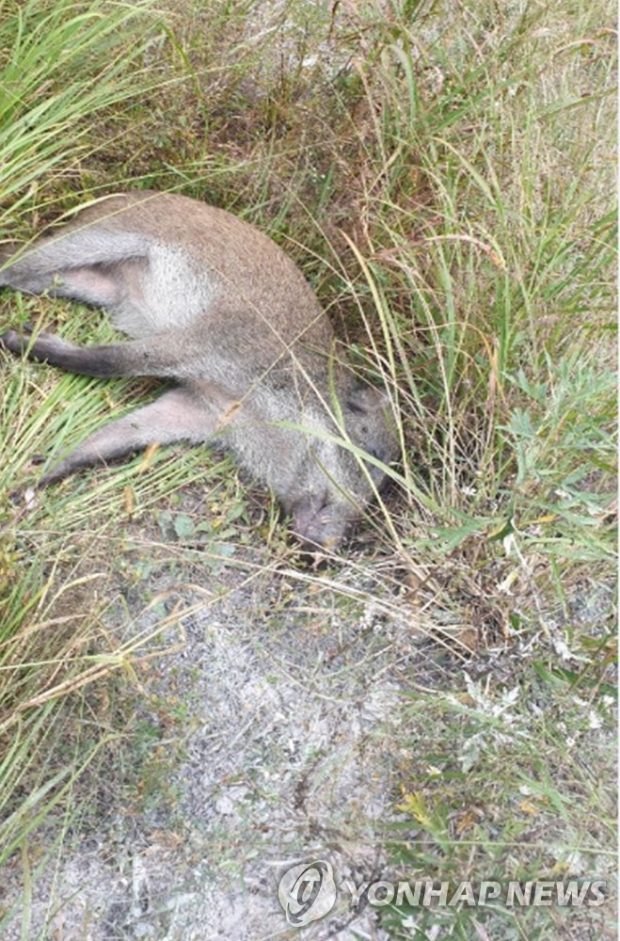South Korea uses helicopters to spray disinfectant over DMZ to prevent spread of ASF

This photo provided by the environment ministry shows a dead wild boar, which had traces of African swine fever, found at the Demilitarized Zone (DMZ) separating the two Koreas on Oct. 2, 2019. (Yonhap)
Seoul: South Korea’s military flew helicopters to spray disinfectant over the Demilitarized Zone (DMZ) separating the two Koreas Friday as it launched a weeklong quarantine operation to prevent the spread of African swine fever, the defense ministry said.
The military began the operations near Yeoncheon, north of Seoul, earlier in the day after traces of the infectious animal virus were found in a dead wild boar inside the DMZ, some 1.4 kilometers north of the DMZ’s southern boundary, this week.
The operations are being carried out under consultations with the U.S.-led United Nations Command, and the military has notified the North of the decision, it said.
The move is aimed at preventing further spread of the disease through wild boars after the virus was found in a wild boar on Wednesday, the ministry said.
A total of 13 cases of African swine fever have been confirmed so far since its first outbreak in the country last month.
Earlier, the military ordered border-guarding troops to shoot on sight wild pigs crossing the DMZ, and notified the North of the decision to prevent any accidental clashes due to the gunshots.
African swine fever does not affect humans but is deadly to pigs. There are currently no vaccines nor cures for the disease. Since its outbreak in China in August last year, the disease has spread to neighboring countries, including Mongolia and Vietnam.
The disease’s outbreak in South Korea came about four months after North Korea reported its first confirmed case of the disease at a farm near its border with China to the World Organization for Animal Health.
It is as yet unclear through which route the disease broke out in South Korea.
The military has said it is unlikely for wild boars of the DMZ to pass through the barbed wire fence along the southern limit line. But possibilities of their movement across the border have been raised as parts of the fence structure could have been damaged due to bad weather, such as a typhoon.
According to Rep. Ha Tae-keung of the Bareunmirae Party, five operations are currently underway to restore parts of the fence that have been damaged.
YONHAP



















































